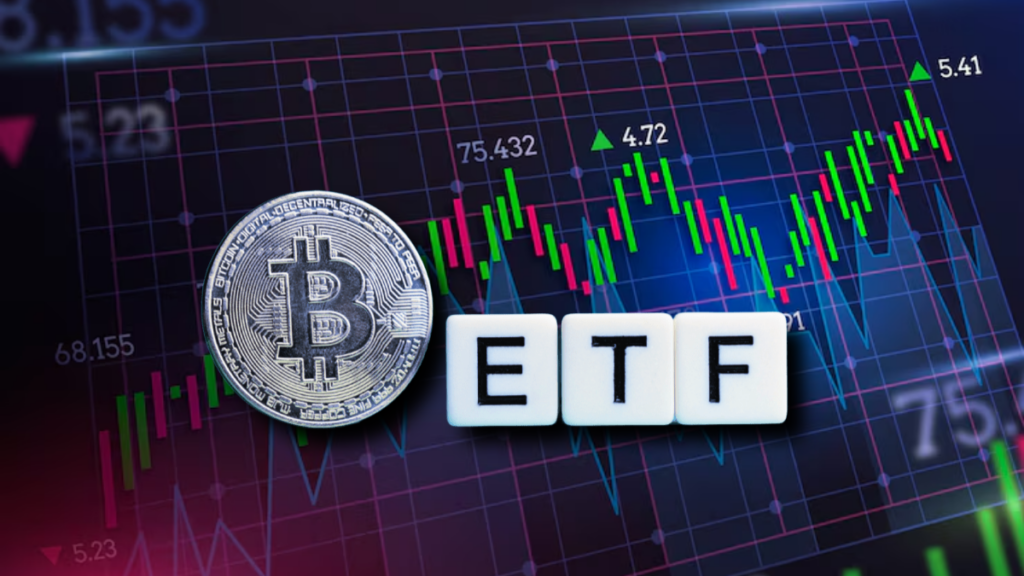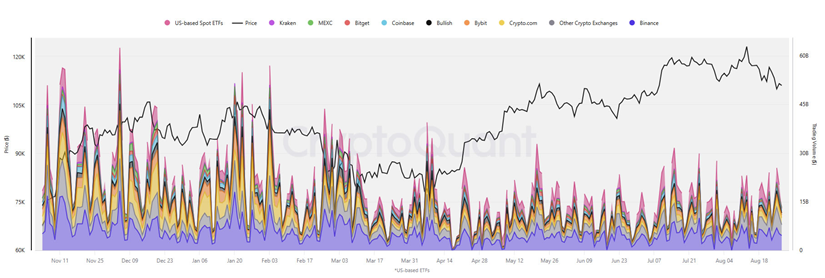TL;DR
- Bitcoin ETFs generate $5 billion to $10 billion daily on active days, surpassing the volume of several traditional platforms.
- The 11 BTC ETFs move $2.77 billion daily, equivalent to 67% of Binance’s spot volume, while ETH ETFs captured $1.24 billion.
- The BlackRock ETF accounts for nearly 40% of BTC flows.
Spot Bitcoin exchange-traded funds in the United States have begun producing daily trading volumes that rival the largest exchanges, reaching between $5 billion and $10 billion on active days.
This figure reflects growing institutional interest in the crypto market, positioning ETFs as a crucial channel for direct buying and selling of BTC.
According to Julio Moreno, head of research at CryptoQuant, these funds now represent a significant source of exposure to Bitcoin, and on some days, they exceed the volume of many traditional platforms.
Binance Still Holds Ground
The 11 BTC ETFs in the U.S. currently generate an aggregate daily volume of $2.77 billion, roughly 67% of Bitcoin’s volume on Binance, which averages $4.1 billion. Even so, Binance maintains its lead in global spot trading, with a total daily volume of around $22 billion across all its cryptocurrencies.
Flow analysis shows that institutional participation in Ethereum remains lower. ETH spot trading is concentrated on Binance and Crypto.com, while ETFs account for just 4% of the volume. However, recent weeks indicate a partial shift in this trend: ETH funds recorded $1.24 billion in net inflows over four recent days, more than double the $571.6 million captured by Bitcoin ETFs during the same period.
Bitcoin ETFs Are Redefining the Crypto Market
Since August 20, ETH ETFs have not experienced any net outflow days and have accumulated more than $4 billion in inflows during August, representing 30% of the total since these products launched 13 months ago.
Among BTC ETFs, the BlackRock iShares Bitcoin Trust leads the flows, concentrating nearly 40% of net inflows with $223.3 million since the start of the week. This shows that ETFs not only complement the spot market but also directly influence liquidity and BTC price formation.
Nick Ruck, director at LVRG Research, noted that the activity of these funds increasingly correlates with BTC price movements, establishing ETFs as a key gateway for institutional capital. ETFs are reshaping the structure of the cryptocurrency market and its interaction with traditional exchanges













